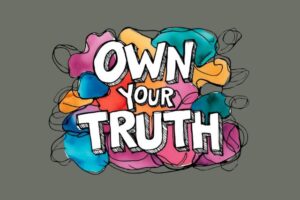The Power of Peace and Social Cohesion in Human Development: How They Shape Our Lives and Society
Peace is much more than simply the absence of war or conflict; it embodies a state of balance, justice, and harmony within a community or nation. True peace goes beyond a ceasefire—it represents a sustainable, long-term resolution where the dignity and rights of every individual are respected, where their freedoms are safeguarded, and where people can live their lives free from the shadows of violence, oppression, or discrimination. In essence, peace is the foundation upon which the well-being of individuals and communities is built.
Equally important is the role of social cohesion in human development. Social cohesion refers to the strength and quality of relationships within a society, where individuals—despite their differences in race, religion, ethnicity, or background—feel a sense of unity and belonging. It’s about creating an environment where every person, regardless of where they come from or their circumstances, feels committed to the collective good of society. Social cohesion fosters a shared responsibility, making sure that no one is left behind, and that everyone has a stake in the well-being of their community.
When peace and social cohesion are present in a society, individuals are more likely to thrive, communities are more likely to prosper, and society as a whole becomes more resilient. In such an environment, people are empowered to contribute meaningfully to the greater good, whether through their work, their interactions with others, or their commitment to social causes. These conditions also create the stability necessary for long-term advancements in areas like education, economic prosperity, healthcare, and human rights. The presence of peace allows for innovation and progress, while social cohesion ensures that these benefits are equally shared among all members of society.
Moreover, social cohesion helps to break down barriers of inequality. It promotes inclusivity, encouraging individuals from diverse backgrounds to come together, respect one another’s differences, and collaborate for common goals. It replaces division and marginalization with understanding and mutual respect. By cultivating these values, society moves closer to achieving a balanced and equitable environment for all its citizens. The integration of peace with social cohesion creates a framework where all individuals have the opportunity to grow, contribute, and succeed. This foundation paves the way for the overall development of a nation and a better future for every person within it.
However, promoting and maintaining peace and social cohesion is not without its challenges. In an increasingly diverse world, where tensions over cultural, political, and economic differences persist, fostering unity can be difficult. Societies often face deep-rooted divisions, inequality, and historical grievances that may prevent true social cohesion. Political instability, violence, and external conflicts can disrupt peace efforts, making it hard for communities to rebuild trust and harmony. These challenges highlight the importance of continuous efforts to bridge divides, address systemic issues, and encourage inclusive dialogue.
As we move forward, we’ll explore how peace and social cohesion influence key areas like education, economic stability, and human rights. We’ll also look at the strategies needed to overcome challenges and how individuals, governments, and organizations can collaborate to drive lasting positive change.
Main Focus: Key Drivers of Peace and Social Cohesion
1. Education as a Catalyst for Peace and Social Cohesion
Education is one of the most powerful tools we have in building peace and fostering social cohesion. It’s through education that we learn the values of empathy, respect, and tolerance—key principles that help us understand and appreciate each other, despite our differences.
In peaceful, cohesive societies, education doesn’t just teach academic knowledge—it shapes individuals into active participants in society, ready to engage in the work of peace. When people understand the importance of fairness and compassion, they are more likely to challenge injustices and work toward building an inclusive, harmonious world.
2. Dialogue and Active Participation: Building Bridges Between People
Peace and social cohesion are not achieved through isolation or top-down mandates—they are built through dialogue. Encouraging conversations between diverse groups, where people can listen, learn, and work toward shared goals, is crucial in fostering mutual understanding.
In such environments, people feel heard and valued, making it easier for them to find common ground and solve problems together. Whether in politics, communities, or workplaces, facilitating inclusive participation allows individuals to contribute to collective efforts aimed at maintaining peace and unity.
3. Flourishing in a Peaceful Society
Living in a peaceful and cohesive society has direct, positive effects on individual well-being. In peaceful societies, people experience better mental health, stronger social connections, and greater life satisfaction.
When people feel secure and connected to others, they are able to pursue personal growth, make meaningful contributions, and build relationships based on trust and respect. The stability and harmony of peaceful societies allow individuals to focus on their dreams and aspirations, without the constant stress of conflict or inequality.
4. Resilience Through Peace and Social Cohesion
One of the key benefits of peace and social cohesion is the ability of communities to bounce back from adversity. Resilient communities are those that stick together during tough times, supporting each other and working collaboratively to overcome challenges.
This sense of unity doesn’t just help communities survive—it enables them to thrive. Communities that are grounded in peace and cohesion are more likely to share resources, innovate, and create opportunities for everyone, strengthening the fabric of society as a whole.
5. Economic Prosperity in Peaceful Societies
The link between peace and economic prosperity is undeniable. Peaceful societies are more likely to attract investment, foster business development, and create job opportunities. When there is stability, people are able to focus on economic growth, leading to lower poverty rates and better access to opportunities.
The Nordic countries provide an example of this: nations such as Denmark, Sweden, and Finland boast strong economies built on a foundation of peace and social cohesion. These countries prioritize inclusivity, education, and healthcare, ensuring that citizens have the tools to succeed, which in turn supports a thriving economy.
6. Promoting Human Rights, Equality, and Social Justice
Where peace and social cohesion exist, human rights are more likely to be respected. In peaceful societies, people’s fundamental rights—such as the right to life, education, and personal security—are protected, allowing for greater equality and social justice.
By creating laws and systems that promote fairness and challenge discrimination, societies become more inclusive and supportive of all people, regardless of their background or identity. When human rights are prioritized, it not only uplifts individuals but also strengthens the collective bond that holds society together.
7. Sustainable Development and Environmental Stewardship
The benefits of peace and social cohesion extend to environmental sustainability as well. When communities are unified, they are more likely to collaborate on protecting the environment and working toward sustainable development.
Costa Rica, for instance, is known for its strong commitment to peace and environmental conservation. The country abolished its military in 1948 and redirected its resources into education and environmental preservation. This forward-thinking approach has made Costa Rica a leader in sustainability, proving that peace and environmental care can go hand-in-hand.
Conclusion: Building a Future Based on Peace and Social Cohesion
Peace and social cohesion are not just abstract concepts; they are the bedrock upon which human development stands. In a world where global challenges continue to evolve, these values create the environment necessary for individuals, communities, and nations to thrive. Whether it’s through fostering educational opportunities, driving economic growth, or safeguarding human rights, peace and social cohesion serve as the guiding principles that shape a flourishing society. They help to ensure that every person, regardless of their background, has the ability to succeed and contribute meaningfully.
The importance of peace and social cohesion cannot be overstated, especially in an increasingly interconnected world. In a time when communities are more diverse and interconnected than ever before, investing in these values has become essential. Strengthening peace and social cohesion doesn’t just benefit one community or one nation; it creates a ripple effect that positively impacts the global community. When these values are nurtured, they allow us to build bridges across cultures, overcome divisions, and address the root causes of conflict and inequality.
In practical terms, this means prioritizing efforts to reduce poverty, combat inequality, and ensure that justice is accessible to all. It involves promoting understanding, encouraging dialogue, and creating systems that are inclusive and fair. It’s not just about ending conflicts—it’s about preventing them by fostering a spirit of unity and collaboration. By embedding peace and social cohesion into the very fabric of society, we can provide individuals with the tools they need to build better futures for themselves and their communities.
Ultimately, the success of our shared future lies in our collective commitment to peace and social cohesion. These values are the foundation for achieving long-term human development, as they allow people to live with dignity, respect, and the opportunity to pursue their dreams. As we face new global challenges, the need for these principles has never been greater.
Now, more than ever, we must all play an active role in cultivating peace and social cohesion in our communities. Whether it’s through supporting initiatives that promote understanding, engaging in open conversations with those from diverse backgrounds, or advocating for policies that ensure equality and justice for all, we all have a part to play in building a world based on these core values.
Let us invest in peace and social cohesion today, for it is the only path to a brighter, more sustainable future. Together, we can create a world where everyone has the chance to live a fulfilling, prosperous life.
Take action now—whether in your community, workplace, or global efforts—by supporting peace initiatives, advocating for social inclusion, and fostering a culture of understanding. Together, we can make a lasting difference.
















